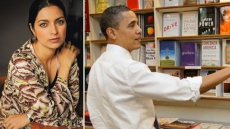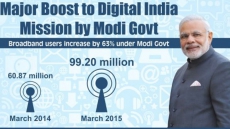Pakistan "lost terribly in the 1965 war" with India, a Pakistani historian has admitted.
Historian and political economist Akbar S. Zaidi dispelled "the victory myth', saying that there can be no a bigger lie as Pakistan had lost terribly, Dawn reported on Saturday.
Zaidi said that people are unaware of this fact because the history taught in Pakistan is from an ideological viewpoint.
Delivering a lecture titled 'Questioning Pakistan's history', he said: "Students are not taught the history of the people of Pakistan rather it is focused on the making of Pakistan."
Zaidi, who teaches history at the Institute of Business Administration, Karachi, was speaking at the event organised by the Faculty of Social Sciences, Karachi University.
"With the celebration of the victory in the 1965 war round the corner, there can be no bigger lie that Pakistan won the war. We lost terribly in the 1965 war," he said.
He asked people to read political and strategic analyst Shuja Nawaz's book "Crossed Swords" that exposed the reality of the war.

The remark comes with with Pakistan just two days away from observing Defence Day and marking the 50th anniversary of the 1965 war.
During his lecgture, Zaidi asked: what is PakistanÂ’s history and is there a need to question PakistanÂ’s history. And when was Pakistan formed? Aug 14, 1947 or Aug 15, 1947? For him the fact we are still talking about historical events 68 years later that are apparently settled is interesting.
On when was Pakistan created, he said one obvious answer is it did so on Aug 14, 1947 but he read out an excerpt from a Pakistan Studies textbook in which it was claimed it came into being in 712AD when the Arabs came to Sindh and Multan. “This is utter rubbish!” he said, rejecting the textbook account.
Later while responding to queries, Zaidi explained that Parsis and Hindus contributed hugely in the educational development of Karachi and in a similar manner the Sikhs in Punjab.
“History in Pakistan is taught from an ideological viewpoint. Pakistan needs to be seen as a geographical entity.”
On separate identities, he replied there was no need to do so. “I can be a Sindhi, Hindu and Pakistani simultaneously.”





